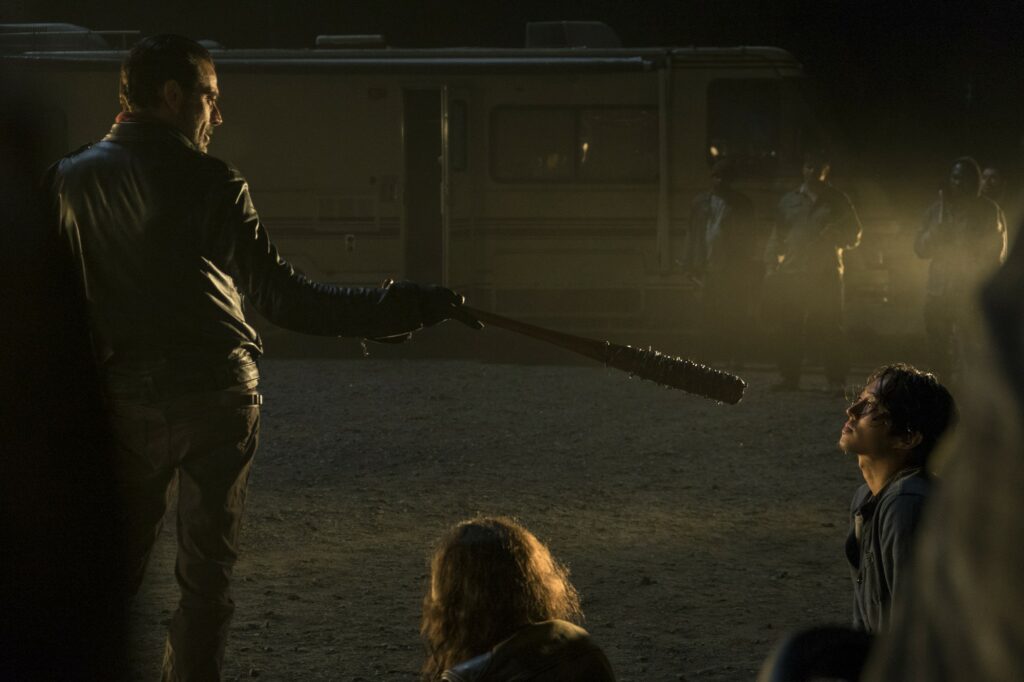
“You are so going to regret crossing me in a few minutes,” said Negan, the newest antagonist to grace AMC’s program The Walking Dead.
Negan made an entrance on the show in last April, as he killed one of the main characters by beating them to death with a baseball wrapped in barbed wire that the villain lovingly calls “Lucille.”
After a summer of waiting, it was revealed who Negan had murdered as audiences witnessed a violent and realistic display of brutality.
While this act moved the story along, the way in which the death happened was gruesome for television, even for The Walking Dead.
This televised event begs the question, can violence in media be justified for the sake of entertainment?
The Parents Television Council criticized The Walking Dead and AMC for the episode’s vicious display.
“The season premiere of The Walking Dead was one of the most graphically violent shows we’ve ever seen on television,” said PTC President Tim Winter. “This brutally explicit show is a powerful demonstration of why families should have greater control over the TV networks they purchase from their cable and satellite providers.”
In response to the episode’s hysteria, Executive Producer Greg Nicotero spoke about why he felt Negan’s assault was necessary.
“Yeah, it’s graphic and horrible,” Nicotero said in an interview with The Hollywood Reporter. “We felt it was important to launch us into the season to show what Negan is capable of doing. That drives so much of where the series is going from here on.”
The appropriateness of Negan’s gruesome on-screen slaughter is still being debated, but it recalls past events where fictional violence was speculated as the cause for real deaths.
In 1999, the Columbine school shooting rocked the world as two students killed and wounded more than 20 people at their school before killing themselves.
After the shocking tragedy, several community members began blaming things such as video games and music for the cause of the incident.
In particular, shock rocker Marilyn Manson was shown to be the face of teenage angst that caused two boys to commit the violent act. Manson’s lyrics were picked apart by protest groups to demonstrate that his songs have a negative effect on young people.
“I definitely can see why they would pick me,” Manson said in his infamous interview with director Michael Moore. “I think it’s easy to throw my face on a TV…because I represent what everyone’s afraid of, because I do and say what I want.”
With these examples given, can violent media be the cause of violent outbursts? Researchers from the Massachusetts General Hospital studied the behavior of over 1,200 7th and 8th graders after playing video games and watching movies that displayed violence.
They discovered that less than five percent of children displayed any violent behavior after the media exposure.
“The researchers found that kids played games to cope with their emotions, to enjoy challenging situations, to keep up with peers playing similar games, to create their own worlds and to relieve stress,” said Dr. Gene Beresin in a Psychology Today article.
Whether we’re on Nicotero’s side or ready to change the channel, the violence will still be there. It’s up to us as consumers to determine if our vulnerability to media is worth the beating.







